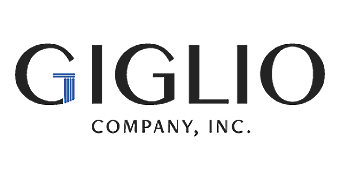Sales tips, leadership communication skills insight and more from Steve Giglio, sales training professional for more than 25 years.
To Be a Great Leader…Teach, Don’t Tell or Do
Many of my clients are quick-learning, driven executives. Often, though, I stress the importance of teaching directs how to accomplish a task/project versus telling them how to accomplish it or worse, doing it for them. Read more
Your Career Is Out of (Your) Control
Your career, like it or not, is not in your control. Sure, you can be extremely competent and even praised by your superiors. But in the end, you need your direct reports to be successful in order for your career to thrive. No leader ever accomplished anything without people to lead. You need their vote, it’s that plain and simple. Realize the opportunity here, not the threat. Read more
Am I Right?…Am I Right? – The Good & Bad About Checking In
When communicating an idea or recommendation, it is essential to check in. However, it’s “how” you do it that makes all the difference. Can you ask “Am I right?” No. That’s not appropriate…well…pretty much ever!
You can, though, when you are speaking with a direct report, client or colleague, ask relational check-in questions.
Asking Relational Questions
Relational questions provide you with an opportunity to see if your recommendation is resonating with your target audience. It also provides a stopping point during which your client or direct report can provide input, which gives you insight into where their head is during the conversation.
Examples of some relational questions are:
Do you see how this idea can help you this year?
From what we’ve just covered how do you see this fitting in with your overall strategy?
Is this idea on strategy?
The Importance of Checking In
Checking in is very important. It accomplished two goals. One, it illustrates you’re concerned about your client’s understanding and accepting of your idea early on in the communication. Two, it shows you have the confidence to ask for their alignment at the start of your communication.
Too often in meetings, I have observed people checking in during the last five minutes of a presentation versus at the beginning, middle and then the end.
You can’t fix a misunderstanding during the eleventh hour of your presentation You can when you uncover it at the start.
Be sure at the start of your presentation to ask for agreement that you have captured the primary goal of your client along with their stated challenges before you present your idea.
Keep Your Problem Clients Closer
My grandfather, and I expect many of yours, always counseled me: “Keep your friends close, keep your enemies closer.”
I counsel my clients to consider this adage when dealing with their most troublesome clients and business associates. You know the ones…they offer their opinions constantly, practice inactive listening and have an air of superiority that diminishes your position in any conversation. Put bluntly…they are windbags concerned only with themselves. But they must be managed and, you can do it! Read more
Dealing with Downsizing
“Good morning, boss, I’ve got an idea!”
“Yeah…well…sorry but we’ve eliminated your position.”
Yikes…blindsided by downsizing! What do you do? How do you go about it? Where is your head? Read more
Credentialing, Part Deux…Ask Killer Open-Ended Questions
In my book I talk about how important the voir dire process is to lawyers. In fact, a dear lawyer friend of mine has said, “a trial is won or lost in the voir dire process.” So, are you winning your clients over with your questions?
Investigate Before Proceeding
During the voir dire stage of a trial, lawyers get their one chance to interact with a juror to observe how they think and what their values are to determine how to present/shape the facts of their case. It is this investigation where they will discover new ways to present information that is likely to resonate with the jury. Critical!!
Lead the Witness
Fast forward to us. I recently wrote about credentialing yourself with your clients. It is the act of demonstrating your knowledge by how you engage with them. One key element is about asking smart, researched, killer open-ended questions that illustrate your diligence performed prior to a client interaction, whether you are persuading or informing them. It’s also a way to “lead the witness” towards the solution you have for their issues!
Case in Point
Here’s a relevant case in point that illustrates this skill:
A client laments they need to put a plan in place for their team to succeed. An easy yet ineffective question to ask is “How will you format the plan?”
A smart question to ask is: “Why is this mission critical now?” Here you will understand what’s essential to your client versus what they’ve been planning. You will know why, not just what, they are planning.
Your client then may say, “We need better team compliance with our process,” to which you might ask, “Any challenges to this?” I would suggest a stronger approach, such as asking, “How has this lack of compliance hurt you organization? For how long?”
I trust you are tracking the progression of establishing public testimony to then synthesize to segue to your idea.
That’s great credentialing!
By the way, since I referenced my book above, you can take a look at it on Amazon.com. Though I wrote it a few years ago, the lessons in it are as relevant today as they were then. Hope you enjoy it.
Changing Behavior to Achieve Goals
To paraphrase an often used quote, “Doing the same thing over and over again and expecting different results” is what I believe is the definition of career stagnation. So often in coaching executives, a client and I come to a discovery; in order to grow, a person must give up a certain part of their business behavior to achieve their development goals. Read more
Fear of Failure? Defend Yourself with Dilligence
Fear of failure affects all of us at some point. For so many of my clients, this fear comes to a head when they are engaging with their customers and clients. It’s natural to worry a client will question your ability. How you prepare for that situation will make the difference. Read more
Size Them Up, Then Test the Waters
Here’s an essential modus operendi going into the New Year, make 2014 the year you illustrate your keen understanding of client’s business BEFORE you recommend they purchase your product/service. Read more

